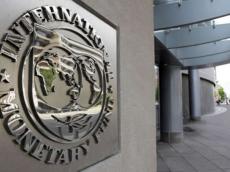|
|
TODAY.AZ / World news
IMF helps Georgia avoid economic slowdown
06 March 2015 [17:00] - TODAY.AZ

/By AzerNews/
By Mushvig Mehdiyev
The International Monetary Fund has come up with a list of recommendations to help stabilize Georgia's economy.
Improving the country’s social policy, increasing taxes and strengthening the dialogue and cooperation between the government and the National Bank are among the recommendations the analytic mission of IMF introduced to the Georgian rulers.
The IMF mission led by Mark Griffiths has set the assessment of the influence of the situation in neighboring countries on Georgia’s economy during its visit to Tbilisi from February 23 to March 4.
Despite IMF’s suggestion to increase taxes, Georgia’s Economy Minister Giorgi Kvirikashvili announced taxes would be reduced instead.
"We have been working very hard to reduce taxes. We think even more liberalization is needed to achieve a result," Kvirikashvili said.
While evaluating the reasons behind the devaluation of Georgia’s national currency, the lari, Griffiths said a combination of several strong shocking factors had influenced Georgia’s economy, including the Russia-Ukraine crisis, deep recession in Russia and the devaluation of currencies in trade partner countries.
"Following the shocks, Georgia’s exports dropped by 30 percent compared to the previous year and the monetary transfers sent home by those working abroad reduced by 25 percent,” Griffiths noted.
"It is true that the lari has depreciated less than other currencies in the region, but anyway it creates problems for individuals who have loans in U.S. dollar against their incomes in the lari,” he added.
Georgia’s economic growth may reach two percent this year but risks are not excluded, Griffiths believed.
"The activities of Georgia’s main trade partners have also slowed and devaluation of their currencies unavoidably influences Georgia’s competitiveness," Griffiths said. In view of recent allegations about the National Bank's inappropriate measures amid the currency crisis, the IMF Mission leader said it was necessary to respect the bank’s independence.
"The government and the bank should unite and resolve the existing problems," Griffiths noted.
Griffiths went on to add that no intervention was needed by the bank when there was a floating exchange rate in a country.
Giorgi Kadagidze, the National Bank's chairman, said earlier that the bank did everything right in order to avoid the currency crisis, and it would not spend money from the reserves to strengthen the lari as its devaluation came after fundamental economic problems in Georgia.
Following a meeting with IMF reps a week ago, Kvirikashvili said the leading monetary institution voiced its backing to the national currency destabilization efforts taken in Georgia.
Georgia's national currency, the lari, started to fall in value against the dollar last November. A drop in oil prices and Russia' economic comedown following west-imposed sanction have contributed to such a devaluation.
As of March 6, one lari is traded at 2.12415 per one dollar, while one euro is calculated at 2.34748 lari.
URL: http://www.today.az/news/regions/139076.html
 Print version
Print version
Connect with us. Get latest news and updates.
See Also
- 02 February 2026 [23:55]
Belarus unveils new ruble symbol - 02 February 2026 [23:33]
Singapore set to form space agency - 02 February 2026 [22:40]
Kendrick Lamar dominates 68th Grammy Awards as Bad Bunny wins album of year - 02 February 2026 [22:23]
Georgia to introduce new school rules - 02 February 2026 [21:49]
Samsung switches to English for global communication - 02 February 2026 [21:21]
Record-breaking asteroid found by UW astronomers - 02 February 2026 [20:19]
China’s factory sector expands in January - 02 February 2026 [19:50]
Devil Wears Prada 2' trailer out - 02 February 2026 [19:21]
Second Mpox case confirmed in Moscow - 02 February 2026 [18:38]
Global air traffic grows strongly in 2025 as capacity constraints persist – IATA
Most Popular
 When desert wealth fuels solar ambition in South Caucasus
When desert wealth fuels solar ambition in South Caucasus
 Partial U.S. government shutdown enters new phase amid budget dispute
Partial U.S. government shutdown enters new phase amid budget dispute
 Apple acquires AI startup that reads facial movements
Apple acquires AI startup that reads facial movements
 Most distant galaxy seen just 280 million years after Big Bang
Most distant galaxy seen just 280 million years after Big Bang
 Azerbaijan’s Azeri Light oil prices increase in global markets
Azerbaijan’s Azeri Light oil prices increase in global markets
 Kyiv metro temporarily closes due to power shortage
Kyiv metro temporarily closes due to power shortage
 Britain’s Starmer ends China trip aimed at reset despite Trump warning
Britain’s Starmer ends China trip aimed at reset despite Trump warning
